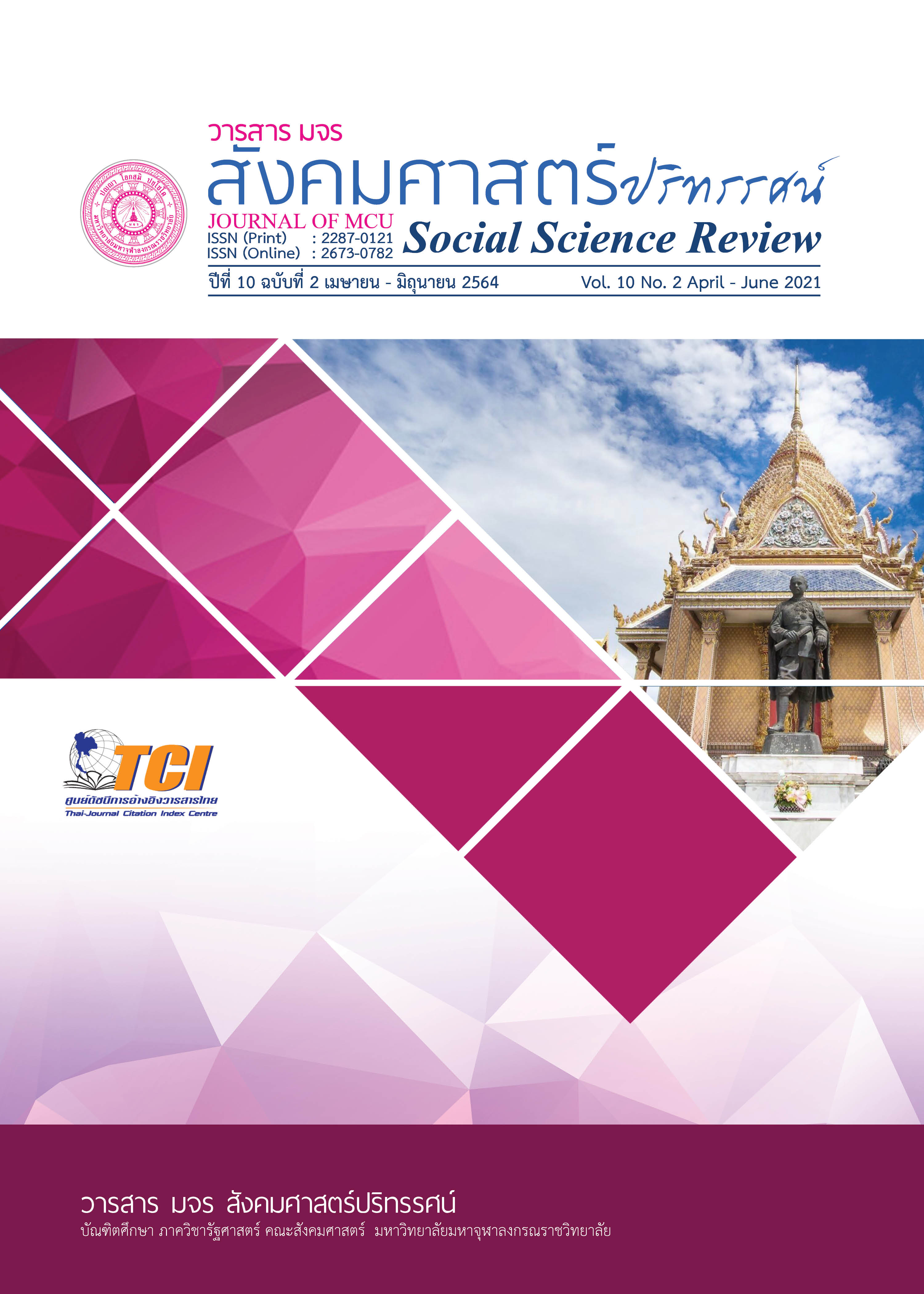ปรัชญาการเมืองยุคคลาสสิก
คำสำคัญ:
ปรัชญา, การเมือง, ยุคคลาสสิกบทคัดย่อ
บทความนี้เป็นการศึกษาเรื่องปรัชญาการเมืองยุคคลาสสิกซึ่งมีโสคราตีส เพลโตและอริสโตเติลเป็นนักปราชญ์คนสำคัญของสำนัก โสคราตีสได้ตั้งสำนักศึกษาคุณธรรมขึ้น ชื่อว่าสำนักปรัชญาโสคราตีส เขาเน้นการศึกษาหาความจริงอย่างมีเหตุผล โดยเรียกวิธีนี้ว่า Socratic Method ทำให้ได้รับการยอมรับจากประชาชนเป็นอย่างมาก เพลโตซึ่งเป็นศิษย์คนสำคัญได้สืบเจตนารมณ์ และได้เป็นหัวหน้าสำนักอคาเดมี เขาได้นำความคิดของโสคราตีสมาเผยแพร่อย่างเป็นระบบ และต่อมาเพลโตก็มีศิษย์ชื่อว่าอริสโตเติลผู้ซึ่งได้สร้างผลงานแนวคิดด้านการเมืองการปกครองไว้มากที่สุด และจำแนกรูปแบบการปกครองออกเป็น 6 รูปแบบ โดยแบ่งเป็นหมวดใหญ่ๆ คือการปกครองใดที่ผู้ปกครองใช้อำนาจเพื่อตนเอง และพรรคพวกถือว่าเป็นรูปแบบปกครองที่เลว ได้แก่ ทรราช (Tyranny) คณาธิปไตย (Oligarchy) และประชาธิปไตย (Democracy) ส่วนการปกครองใดที่ผู้ปกครองใช้อำนาจการปกครองเพื่อประโยชน์ของส่วนรวมถือว่าเป็นรูปแบบการปกครองที่ดี ได้แก่ ราชาธิปไตย (Monarchy) อภิชนาธิปไตย (Aristocracy) และโพลิตี้ (Polity)ในที่สุดอริสโตเติลได้สร้างอคาเดมีของตนเองชื่อว่าเลซีอุม (Lyceum)
เอกสารอ้างอิง
ทินพันธุ์ นาคะตะ. (2560). ปรัชญาการเมือง (พิมพ์ครั้งที่ 2). กรุงเทพฯ : สำนักพิมพ์ แห่งจุฬาลงกรณ์มหาวิทยาลัย.
นรพัชร เสาธงทอง. (2559). ปรัชญาการเมือง. กรุงเทพฯ: มหาวิทยาลัยปทุมธานี.
เรืองวิทย์ เกษสุวรรณ. (2551). หลักรัฐศาสตร์ (พิมพ์ครั้งที่ 3). กรุงเทพฯ: บพิธการพิมพ์.
สมบัติ ธำรงธัญวงศ์. (2539). การเมือง. แนวความคิดและการพัฒนา. กรุงเทพฯ: สำนักพิมพ์เสมาธรรม.
________. (2551). ระบบการเมืองและระบบสังคม. กรุงเทพฯ: สถาบันบัณฑิต พัฒนบริหารศาสตร์.
สุกิจ ชัยมุสิก. (2554). ทฤษฏีการเมืองและจริยศาสตร์. กรุงเทพฯ: มหาวิทยาลัยมหามกุฎราชวิทยาลัย.
สุขุม นวลสกุล และคณะ. (2539). ทฤษฎีการเมืองสมัยโบราณและสมัยกลาง. กรุงเทพฯ: สำนักพิมพ์มหาวิทยาลัยรามคำแหง.
ดาวน์โหลด
เผยแพร่แล้ว
รูปแบบการอ้างอิง
ฉบับ
ประเภทบทความ
สัญญาอนุญาต
ลิขสิทธิ์ (c) 2021 วารสาร มจร สังคมศาสตร์ปริทรรศน์

อนุญาตภายใต้เงื่อนไข Creative Commons Attribution-NonCommercial-NoDerivatives 4.0 International License.
เพื่อให้เป็นไปตามกฎหมายลิขสิทธิ์ ผู้นิพนธ์ทุกท่านต้องลงลายมือชื่อในแบบฟอร์มใบมอบลิขสิทธิ์บทความให้แก่วารสารฯ พร้อมกับบทความต้นฉบับที่ได้แก้ไขครั้งสุดท้าย นอกจากนี้ ผู้นิพนธ์ทุกท่านต้องยืนยันว่าบทความต้นฉบับที่ส่งมาตีพิมพ์นั้น ได้ส่งมาตีพิมพ์เฉพาะในวารสาร มจร สังคมศาสตร์ปริทรรศน์ เพียงแห่งเดียวเท่านั้น หากมีการใช้ภาพหรือตารางหรือเนื้อหาอื่นๆ ของผู้นิพนธ์อื่นที่ปรากฏในสิ่งตีพิมพ์อื่นมาแล้ว ผู้นิพนธ์ต้องขออนุญาตเจ้าของลิขสิทธิ์ก่อน พร้อมทั้งแสดงหนังสือที่ได้รับการยินยอมต่อบรรณาธิการ ก่อนที่บทความจะได้รับการตีพิมพ์ หากไม่เป็นไปตามข้อกำหนดเบื้องต้น ทางวารสารจะถอดบทความของท่านออกโดยไม่มีข้อยกเว้นใดๆ ทั้งสิ้น





